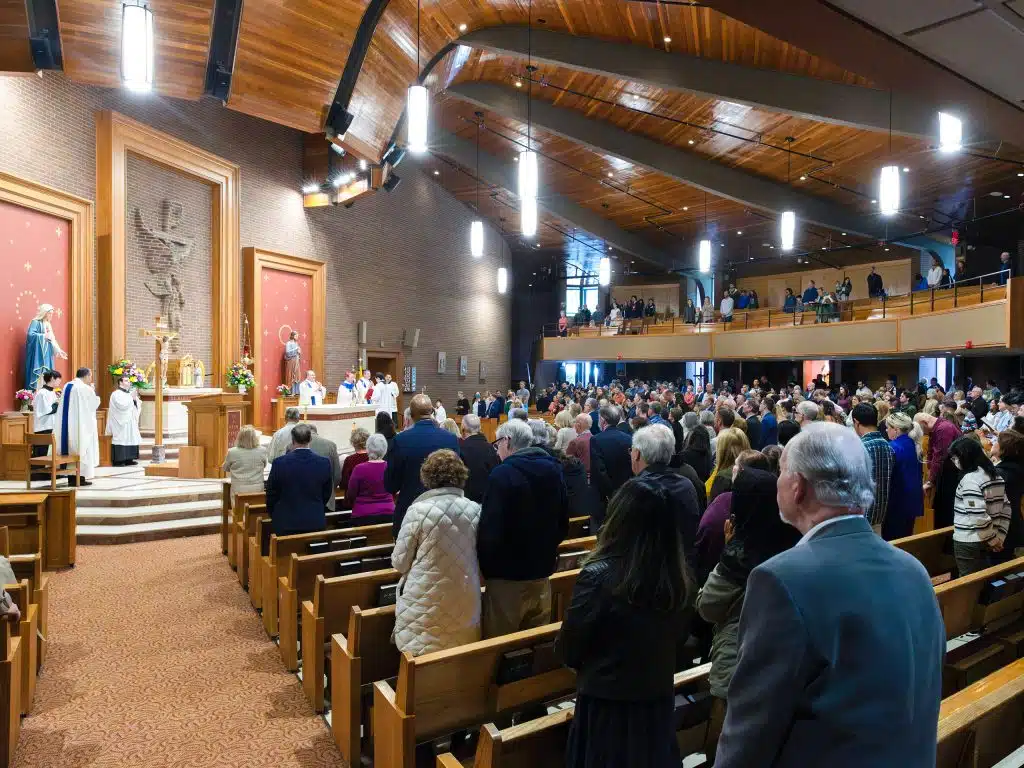St. Cornelius (died 253)
Feast day: Sept. 16
With St. Cornelius we have an example of a saint whose patronage is based on the Latin meaning of his name, combined with confused iconography. The name Cornelius comes from the Latin word for horn, such as a bull or ram’s horn. In art St. Cornelius is usually shown holding a horn, although more often than not it is a curved brass horn, the type that was used in the Middle Ages to rally troops in battle. As it happens, these war horns had an almost identical shape as the ear trumpets or ear horns that hard-of-hearing people once used to amplify sounds. And so, by this long process, St. Cornelius became the patron of everyone who suffers from any type of hearing trouble.
Cornelius belonged to one of the most distinguished patrician families in Rome. His ancestors had served as consul (one of the two chief administrators of Rome) or as tribune (the representative of the working classes and the poor) since the 5th century B.C. One of his female ancestors had been the wife of Julius Caesar and another the wife of Caesar’s political rival, Pompey the Great.
In 251, when Cornelius was elected pope, the Church in Rome was in disarray. The Christians had just endured an especially violent period of persecution under the late Emperor Decius. Across the empire there were Christian men and women who, under torture or out of fear of a terrible death, had abandoned their faith and sacrificed to the pagan gods to save their lives. There was a faction within the Church that insisted the lapsed Christians should never be permitted to return, but Pope Cornelius took the more lenient view. Arguing that for those who sincerely repented there was no limit to God’s forgiveness, Cornelius declared that after a proper penance the lapsed who wished to return the Church would be welcome.
The controversy caused a split in the Church, with a priest named Novatian setting himself up as a rival or anti-pope. When St. Cyprian, bishop of Carthage, learned of Novatian’s schism he rallied the 100 bishops of North Africa in support of Pope Cornelius. In Alexandria the bishop, St. Dionysius, persuaded the bishops of Egypt and the Middle East also to side with Cornelius against Novatian.
Cornelius’ reign was very short. In 252 a plague broke out in Rome and the pagans blamed the Christians. Cornelius was seized and sent into exile in Civitavecchia, where he was so badly mistreated that he died in 253. Although he did not die a violent death, because of the sufferings he endured in exile the Roman Christians venerated him as a martyr. St. Cornelius’ original tombstone has survived in the Catacomb of San Callisto outside Rome. It reads very simply, “Cornelius, Martyr.”
Craughwell is the author of numerous books about the saints, including Saints Behaving Badly (Doubleday, 2006).


